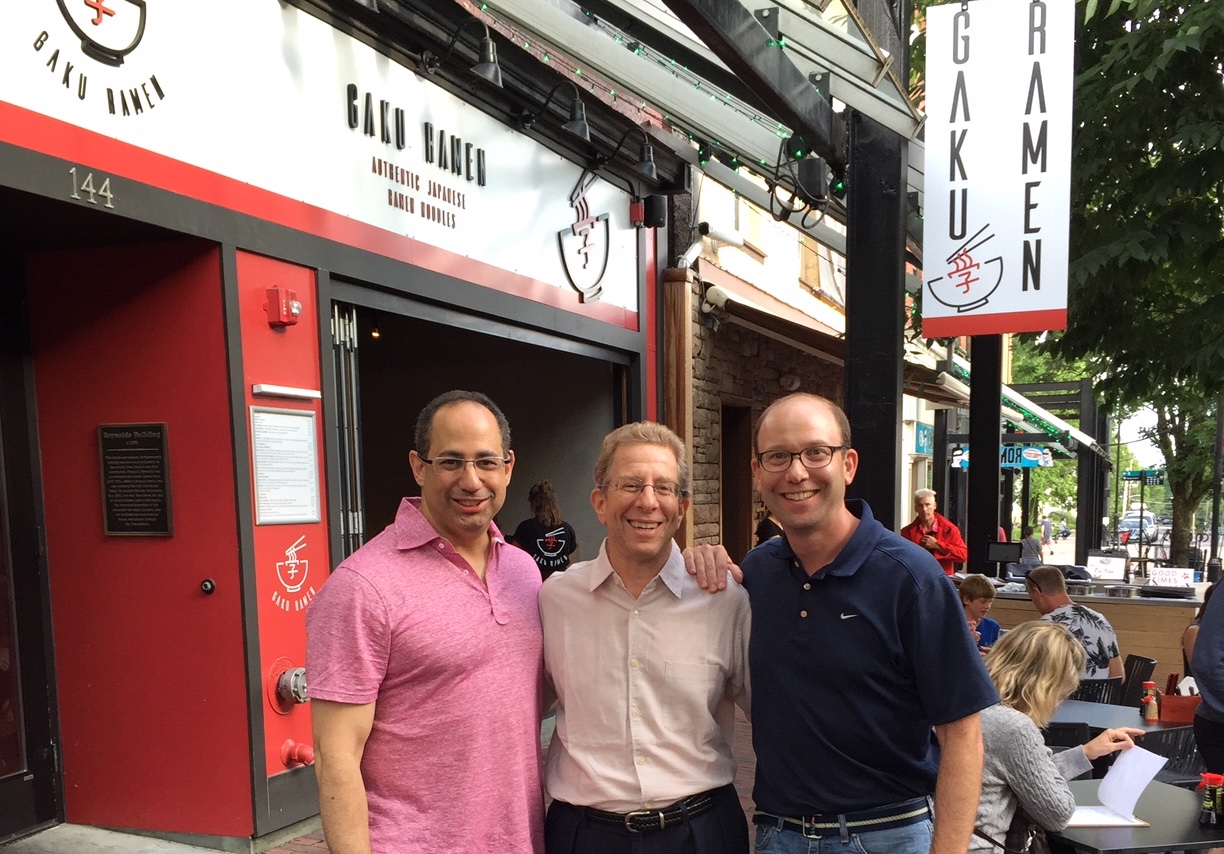Noodles, broth, and meat: At first glance, the basic ramen blend might seem simple. But don’t be fooled. “If it’s too bland, it’s just soup,” says Ryan Goldstein ’93, co-owner of Burlington, Vermont’s Gaku Ramen. Opened in 2016, the restaurant is a collaboration between two Dartmouth BFFs—Goldstein and David Stone ’93—along with a third friend, Michael March. So, what takes a bowl beyond a soup and into the realm of authentic ramen? Gaku’s recipe for success includes a few unexpected factors. From broth to bromance, we caught up with the co-founders to talk about the surprising secrets to their show-stopping noodles.
1. A Balanced Broth
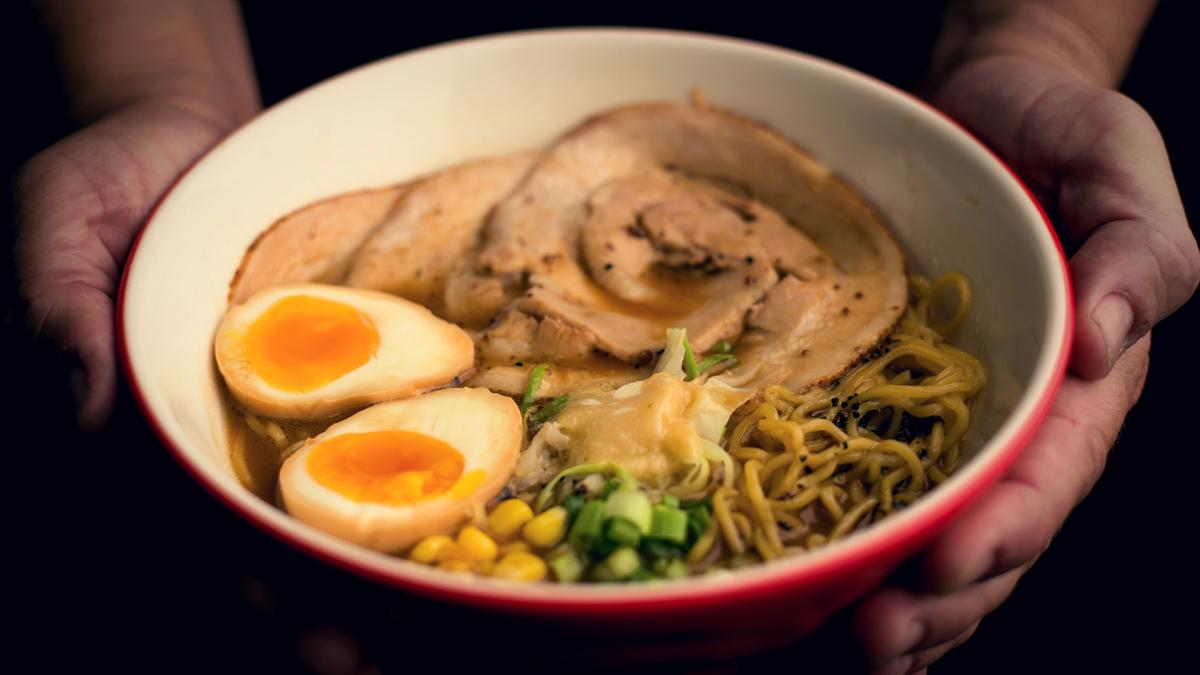
Slowly and carefully simmered until it’s savory and slurpable, a buttery broth is the foundation of any good ramen. But not all broths are created equal. “The broth dictates the type of ramen and it’s not as easy as people think to get it right. It needs to simmer for a long time; it needs to be very flavorful but not too salty or overpowering,” says Goldstein, who is based in Tokyo.
With a humble respect for the broth styles perfected over time in Japan, the Gaku co-founders yielded to the experts when developing a menu. They worked with two different Japanese chefs, flying each chef to Vermont several times during the planning process. The result? Three broth styles, each drawing from a different regional tradition: pork bone-based tonkotsu from Kyushu, soy-based shoyu from central Japan, and miso ramen from Hokkaido.
2. Hordes of Hungry Students
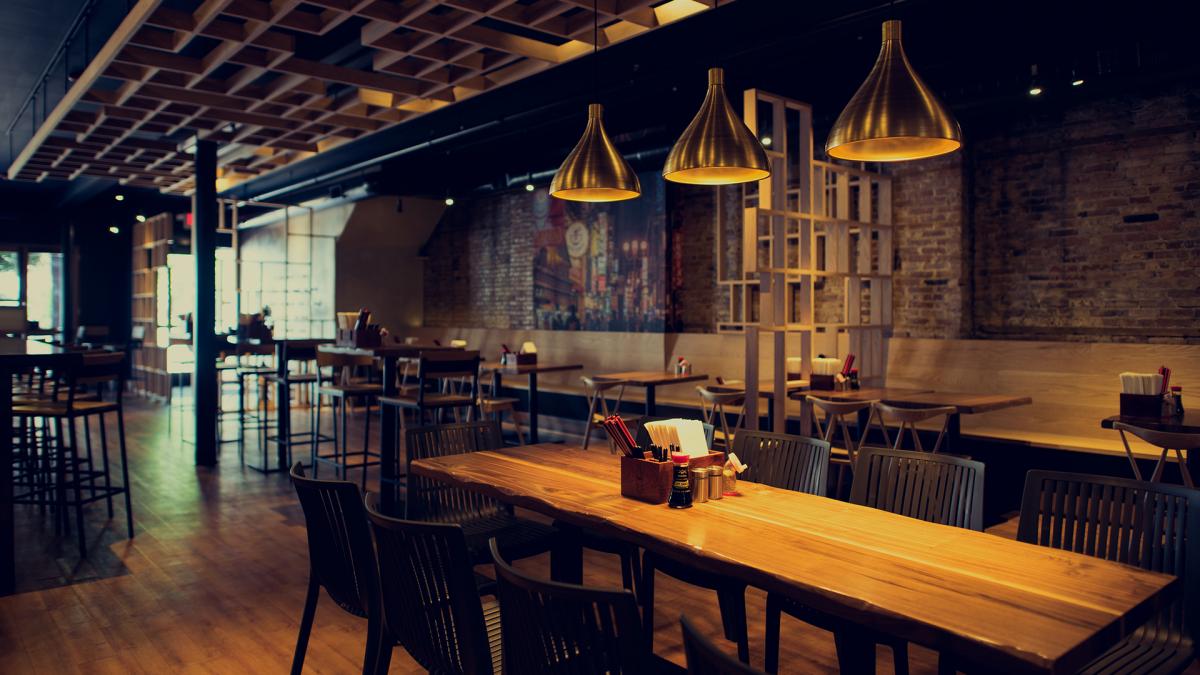
We’ve all been there: seeking nourishment from a sad, salty Cup Noodles at ungodly hours of the night. Instant ramen might have been central to your college experience, but in 2019, real ramen—nourishing, delicious, and inexpensive—is the brain food students need.
“Looking back at our days at Dartmouth, if that option existed when we were in college, we definitely would have partaken,” says Stone, who still lives in Hanover and laments the relative paucity of authentic ethnic food options. That’s what was on his mind when he first reached out to Goldstein with an idea to bring ramen to college towns. Coincidentally, Goldstein had been talking to March, a Middlebury alumnus, about the same thing for years. Joining forces, the trio first sought a spot in Hanover, but after coming up empty, they snagged a storefront in the busting college town of Burlington. (A second location in Boulder, Colorado is slated to open next month.)
3. An Asian Studies Degree
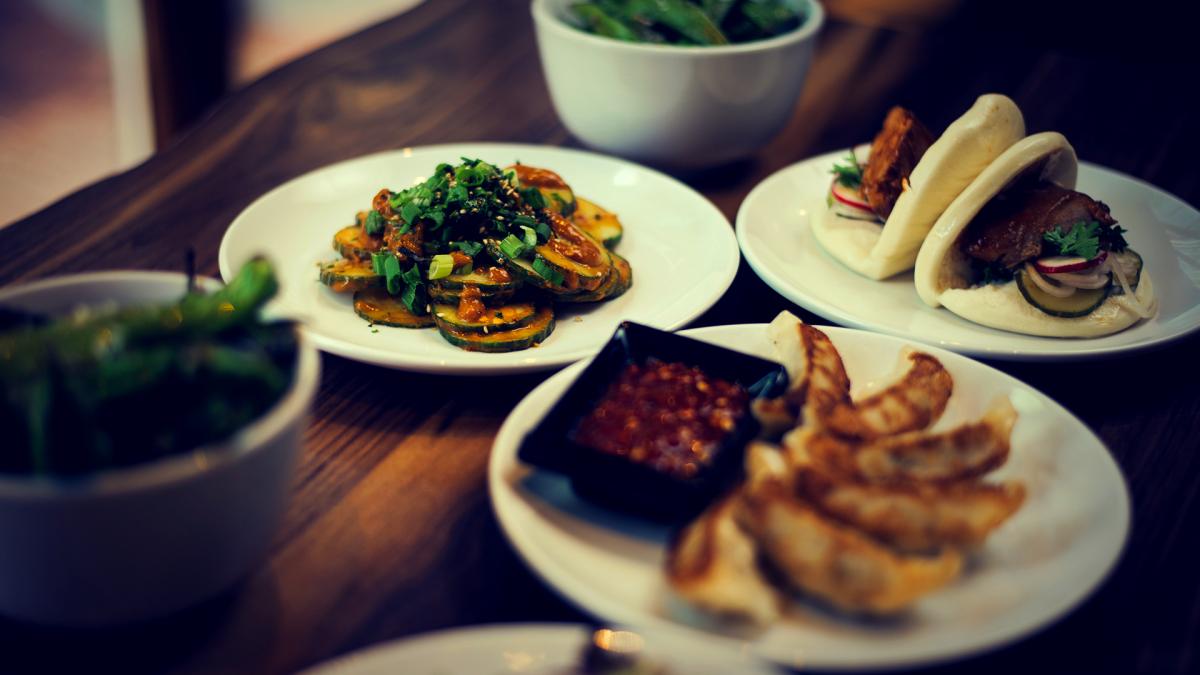
Ok, we’re not saying you need a degree from Dartmouth to make a good bowl of ramen. But for Goldstein, it all began with a decision to double-major in Asian studies and history. “Everything I do in Japan, I trace it all back to Dartmouth,” he says.
On his first day of college, Goldstein knew almost nothing about Japan—but a fateful decision to sign up for Steven Ericson’s Japanese history class changed everything. Goldstein started Japanese language courses as a sophomore and traveled to Tokyo as junior on his Foreign Study Program to get his first taste of Japanese life (and ramen). The rest was history. Goldstein returned to Japan after graduation to pursue a law degree; now, decades later, he’s a litigator and a true Tokyo local who knows his noodles.
Goldstein credits Dartmouth’s small class size, accessible professors, and strong study abroad program for his decision to take that plunge. “Japanese is a tough language, and you really have to be in it for the long haul. The atmosphere at Dartmouth, having professors who understood that and worked with me—it’s what led me to apply to graduate school in Japan.”
4. Surgeon Samurai Skills
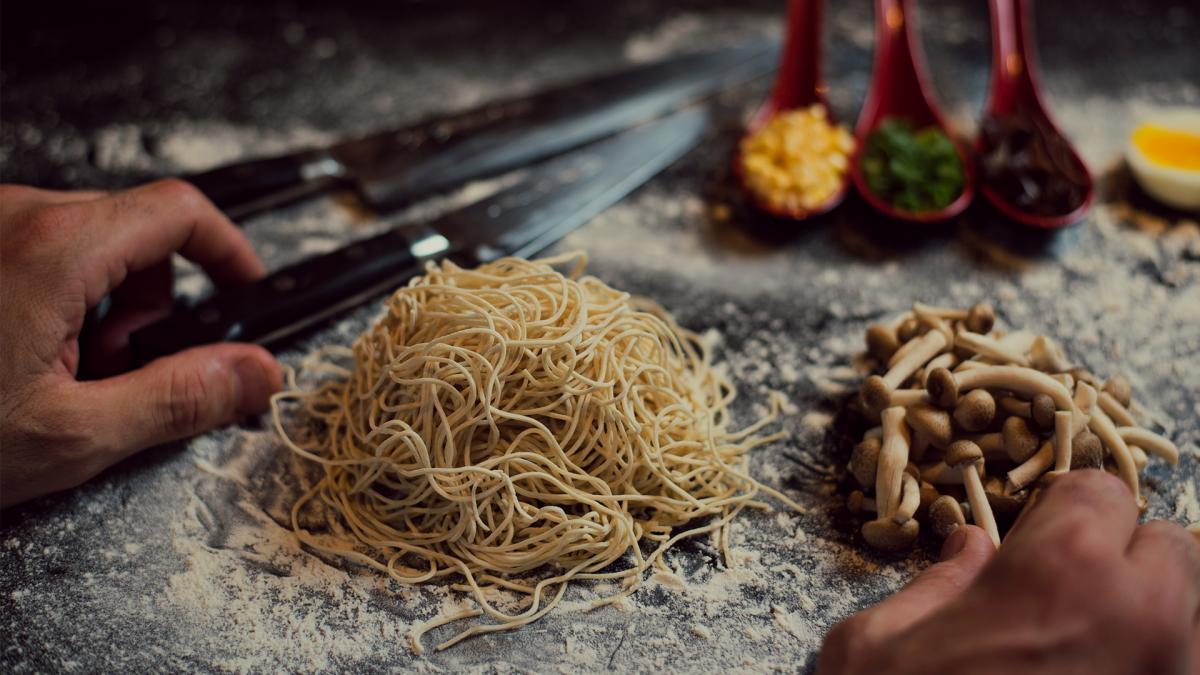
A surgeon and a lawyer might make strange ramen business bedfellows, but Goldstein always admired his friend’s impeccable work ethic. As a young biochemistry major, Stone “was always crazy responsible. He’d be at the library at 8 a.m. on a Saturday and so focused,” remembers Goldstein.
So, it doesn’t surprise Goldstein that Stone is now a vascular surgeon at Dartmouth-Hitchcock Medical Center. “Surgeons have to be cool under pressure, very precise, and very exact,” Goldstein says. “And he brings all those attributes to the restaurant. He’s careful and makes sure every detail is right. Plus, he’s probably pretty good with chopsticks!”
5. A Durable Dartmouth Bond
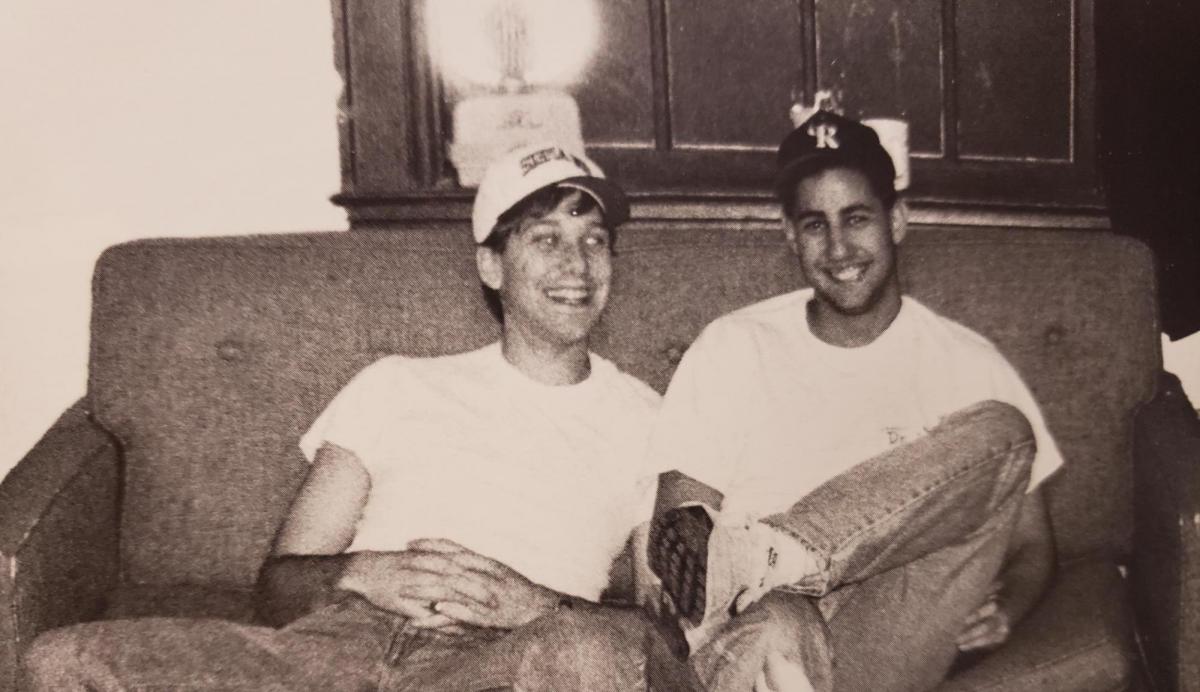
When Goldstein and Stone met as freshmen at Dartmouth 30 years ago, they were instant best friends. “Since day one, we were inseparable,” Goldstein remembers. And despite living on separate continents for decades, that lasting friendship became the foundation of their new business. “There’s no question, one of the most enjoyable parts of the entire venture has been reconnecting with Ryan,” Stone says.
Perhaps proves the ultimate power of a good bowl of noodles: It can bring friends together. “It’s serendipitous,” adds Stone. “Who knew?!”

